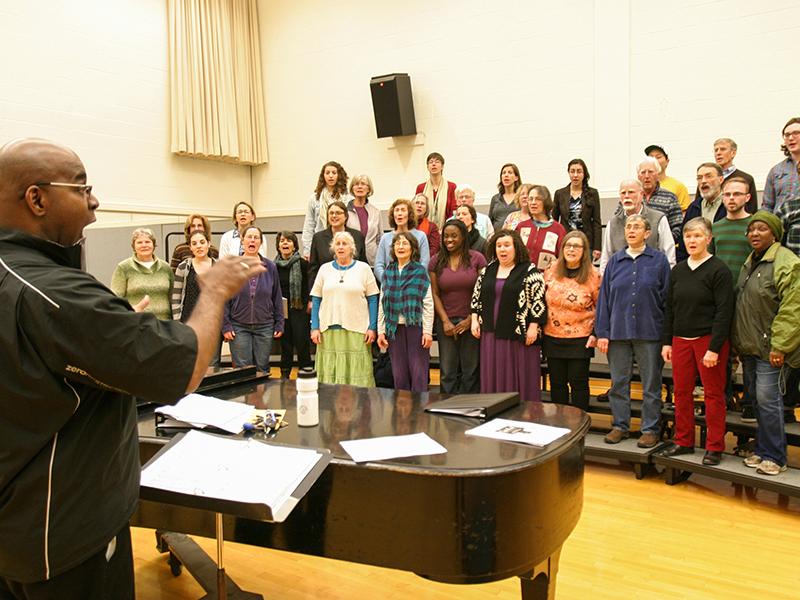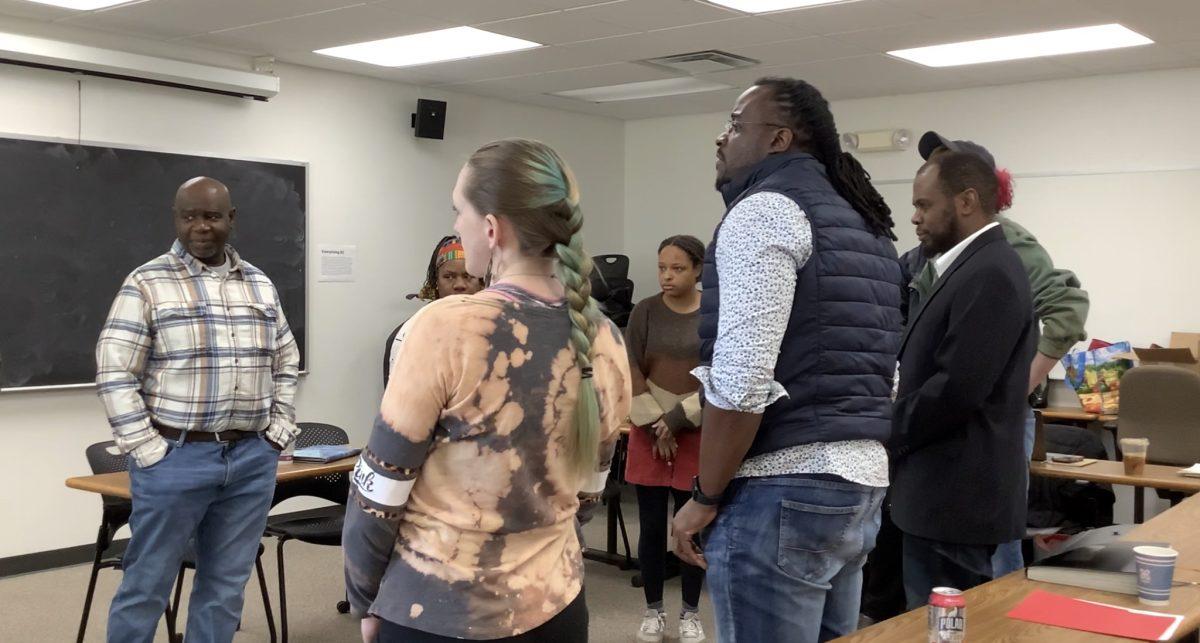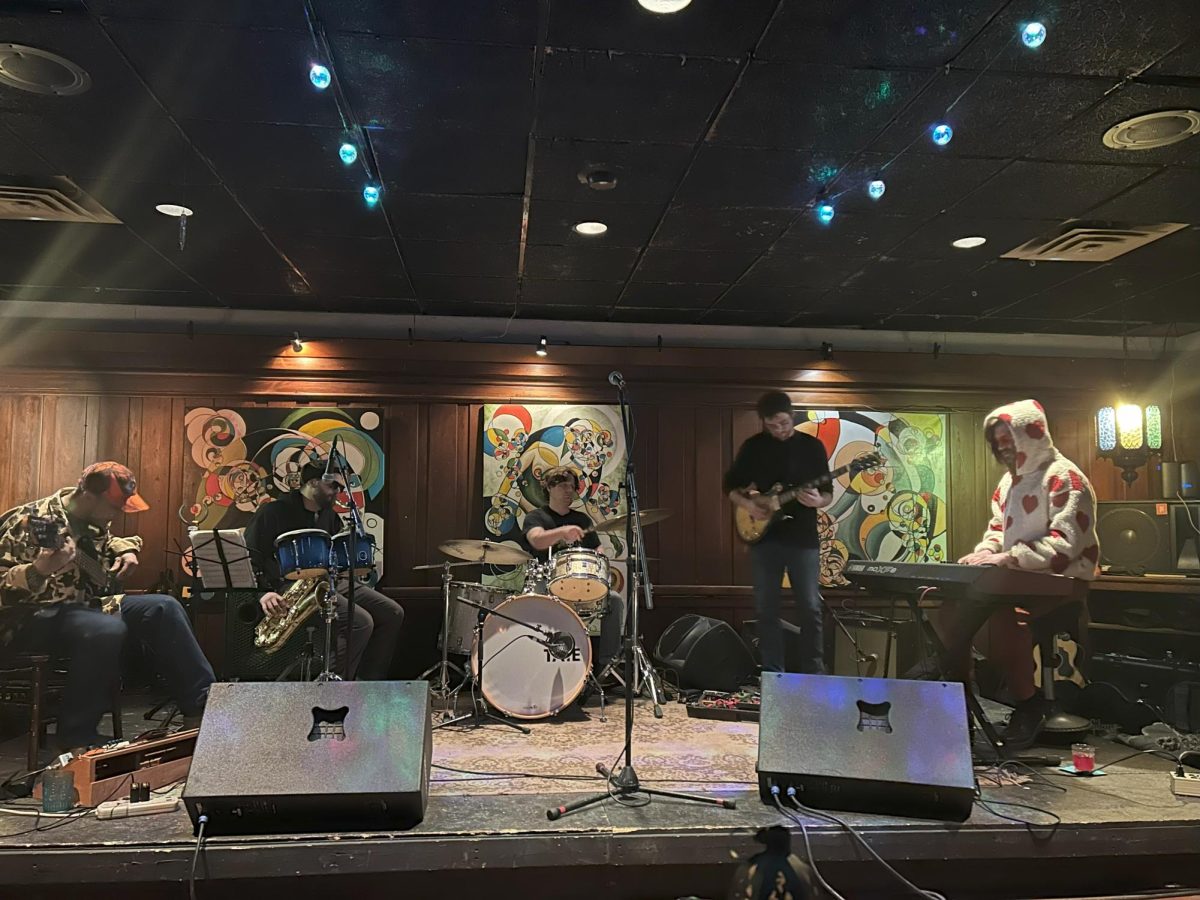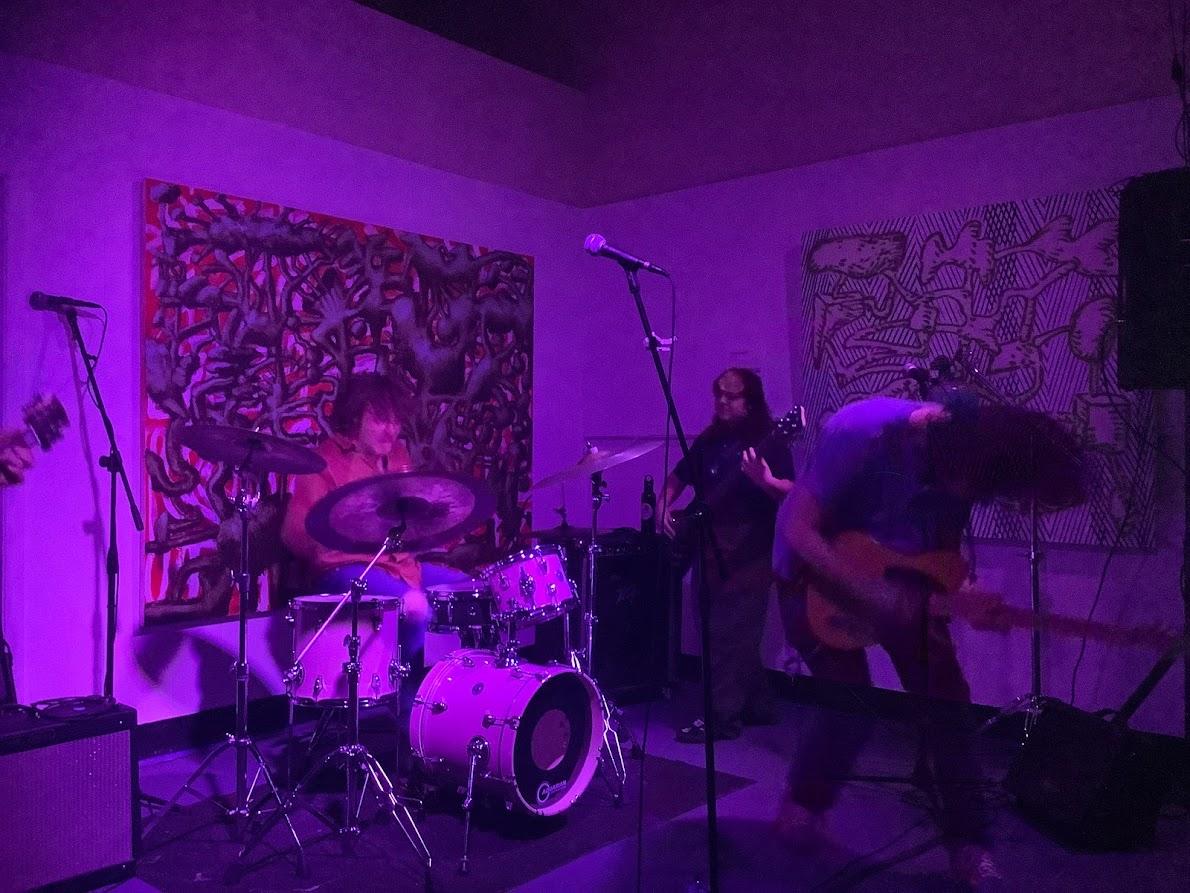Millicent Clarke-Maynard, a retired African-American school teacher, stands on the the bleachers with her eyes closed and body swaying. She sings, “We are searching for hope as we fight against misogyny, race, hatred and AIDS.” Standing to her right is an elderly white woman. Behind her, a young Asian-American student. And more than 30 other singers of the Dorothy Cotton Jubilee Singers join Maynard in harmony for a powerful rendition of the song “Spirituals.”
The Dorothy Cotton Jubilee Singers (DCJS) is a local a cappella group formed by community members and students of Ithaca College and Cornell University. It is a part of Village at Ithaca, a not-for-profit organization that seeks to improve social and economic inequality for public school students in Ithaca.
The DCJS advocates for social change through its songs by preserving the centuries-old genre of negro spiritual music, DCJS founder, Dr. Baruch Whitehead, said. Whitehead serves as the group’s artistic director and is also a professor of music education at IC.
“It is an auditioned group, but you don’t have to read music. You just have to have a spirit of social justice and a love for these songs,” Whitehead said. “We use these songs to get people to start talking about race, racism and racial issues in the country.”
[topswf swf=’https://www.ithacaweek-ic.com/wp-content/uploads/2015/04/joebrandonflashithacaweek.swf’ width=’550′ height=’400′ quality=’best’ wmode=’transparent’ scale=’default’ flashvars=” allowfullscreen=’false’]
The group has gained popularity over the years. It has over 200 ‘Likes’ on Facebook and has several concerts in May, which the group is currently rehearsing for.
Negro spirituals date back to the 17th century when slaves first arrived in America from Africa and began singing songs in the work fields. Whitehead said while the music is an African-American tradition, the group welcomes members of all colors, gender, age, sexuality and religion.
The Fisk Jubilee Singers was formed in 1871 at Fisk University in Nashville, Tennessee, and is the nation’s first negro spiritual a cappella group. Musical director Paul Kwami said his group sings to preserve an important part of black cultural music.
“The Fisk Jubilee Singers also perform with the goal of preserving the music, sharing spiritual, historical and social messages through the songs,” Kwami said. “Additionally, the Fisk Jubilee Singers continue to preserve the legacy established by the original ensemble.”
Clarke-Maynard joined the organization three years ago to preserve the negro spirituals, which she feels is being forgotten.
“The community needs to understand the spirituals and why it is important to preserve culture for future generations because you don’t hear a lot about negro spirituals. In fact, the word ‘negro’ is so seldom mentioned,” Clarke-Maynard said.
She also said she likes the emphasis on social equality, especially the inclusivity of different peoples, that the organization is advocating.
“I’ve been teaching children for 33 years and I teach inclusion, acceptance of people whether they’re Jews, Gentiles or Christians,” she said. “I think the community sees us as a cohesive group of people that include everyone and that’s important.”
“This music really captures the pain that the slaves felt, and it’s something we should never forget,” Susan Lang, a retired managing editor of Cornell University and member of the group, said.
Shyla Foster, a graduate student who studies English at Cornell, said that although the group is singing songs that are rooted in African-American tradition, it sends a strong social message of diversity by having people of various backgrounds on one stage.
“[DCJS] becomes like a family in the way it operates,” Foster said. “I think it is really empowering for people in the audience to see such a wide range of ages, races and orientations because then you can see that you’re welcome.”


















